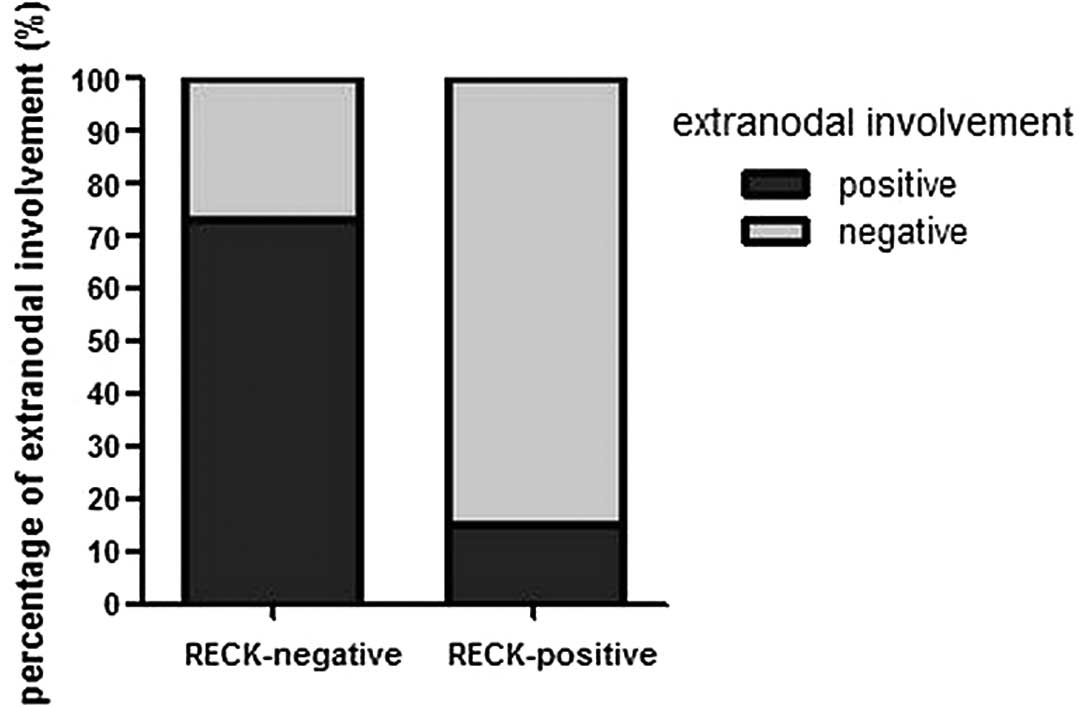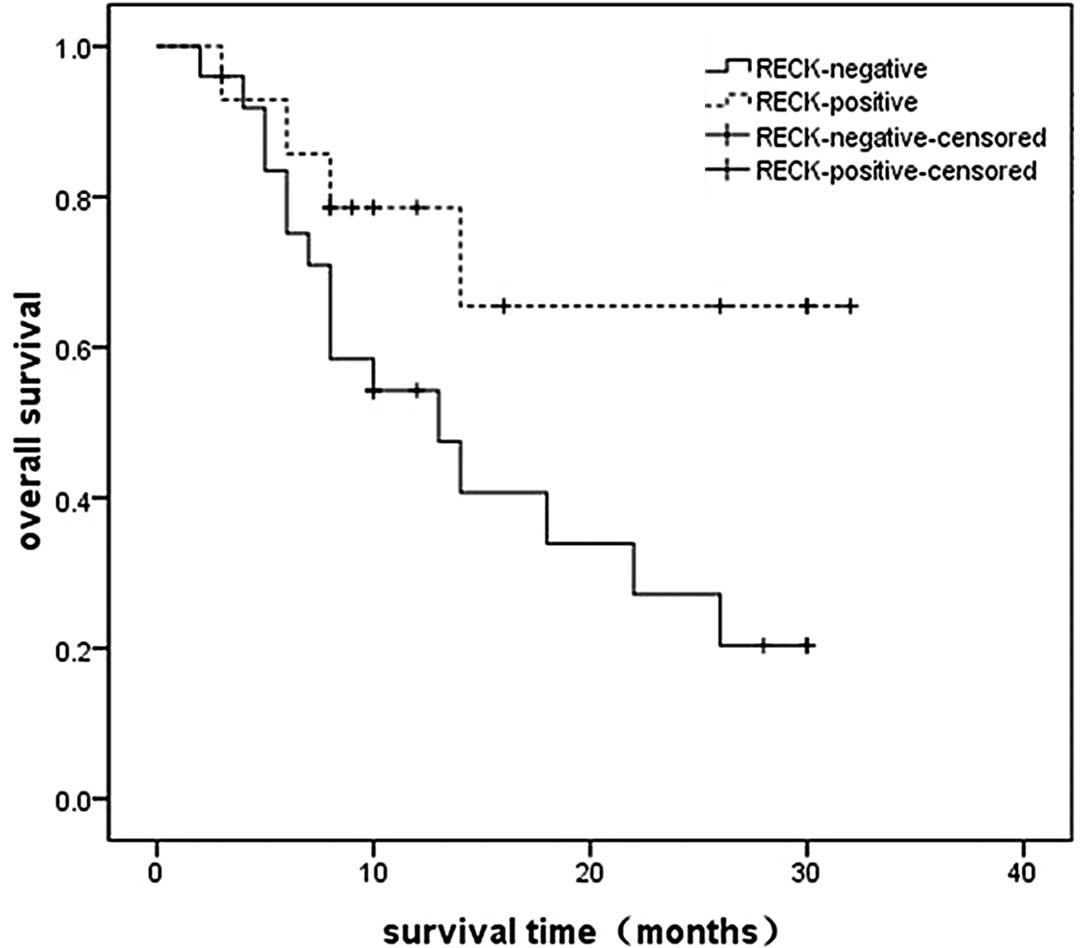|
1
|
Lennert K and Feller AC: The diagnosis of
lymphoma. Histopathology of Non-Hodgkin’s Lymphomas (Based on the
Updated Kiel Classification). 2nd edition. Berlin: Springer-Verlag;
pp. 1–6. 1992
|
|
2
|
Harris NL, Jaffe ES, Stein H, Banks PM,
Chan JK, Cleary ML, Delsol G, De Wolf-Peeters C, Falini B, Gatter
KC, et al: A revised European-American classification of lymphoid
neoplasms: a proposal from the International Lymphoma Study Group.
Blood. 84:1361–1392. 1994.PubMed/NCBI
|
|
3
|
Jaffe ES, Harris NL, Stein H and Vardiman
JW: Pathology and genetics of tumours of haematopoetic and
lymphphoid tissues. WHO Classification of Tumours. Kleihues P and
Sobin LH: 3. 1st edition. Lyon, France: IARC Press; pp. 1–351.
2001
|
|
4
|
Pileri S, Ralfkiaer E, Weisenburger D, et
al: Peripheral T-cell lymphoma, not otherwise specified. WHO
Classification of Tumors of Hematopoietic and Lymphoid Tissues.
Swerdlow S, Campo E, Harris NL, et al: 4th edition. Lyon: IARC; pp.
4292008
|
|
5
|
Vose J, Armitage J and Weisenburger D;
International T-Cell Lymphoma Project: International peripheral
T-cell and natural killer/T-cell lymphoma study: pathology findings
and clinical outcomes. J Clin Oncol. 26:4124–4130. 2008. View Article : Google Scholar : PubMed/NCBI
|
|
6
|
Su IJ, Wang CH, Cheng AL, Chen YC, Hsieh
HC, Chen CJ, Tien HF, Woei-Tsay, Huang SS, Hu CY, et al:
Characterization of the spectrum of postthymic T-cell malignancies
in Taiwan. A clinicopathologic study of HTLV-l-positive and
HTLV-l-negative cases. Cancer. 61:2060–2070. 1988. View Article : Google Scholar : PubMed/NCBI
|
|
7
|
Takagi N, Nakamura S, Ueda R, Osada H,
Obata Y, Kitoh K, Suchi T and Takahashi T: A phenotypic and
genotypic study of three node-based, low-grade peripheral T-cell
lymphomas: angioimmunoblastic lymphoma, T-zone lymphoma, and
lymphoepithelioid lymphoma. Cancer. 69:2571–2582. 1992. View Article : Google Scholar : PubMed/NCBI
|
|
8
|
Nakamura S, Suchi T, Koshikaua T, Suzuki
H, Oyama A, Kojima M, Motoori T, Ueda R and Takahashi T:
Clinicopathologic study of 212 cases of peripheral T-cell lymphoma
among the Japanese. Cancer. 72:1762–1772. 1993. View Article : Google Scholar : PubMed/NCBI
|
|
9
|
López-Guillermo A, Cid J, Salar A, López
A, Montalbán C, Castrillo JM, González M, Ribera JM, Brunet S,
García-Conde J, Fernández de Sevilla A, Bosch F and Montserrat E:
Peripheral T-cell lymphomas: initial features, natural history, and
prognostic factors in a series of 174 patients diagnosed according
to the R.E.A.L. Classification. Ann Oncol. 9:849–855.
1998.PubMed/NCBI
|
|
10
|
Gisselbrecht C, Gaulard P, Lepage E,
Coiffier B, Brière J, Haioun C, Cazals-Hatem D, Bosly A, Xerri L,
Tilly H, Berger F, Bouhabdallah R and Diebold J: Prognostic
significance of T-cell phenotype in aggressive non-Hodgkin’s
lymphomas. Groupe d’Etudes des Lymphomes de l’Adulte (GELA). Blood.
92:76–82. 1998.
|
|
11
|
No authors listed:. Effect of age on the
characteristics and clinical behavior of non-Hodgkin’s lymphoma
patients. The Non-Hodgkin’s Lymphoma Classification Project. Ann
Oncol. 8:973–978. 1997.
|
|
12
|
Takahashi C, Sheng Z, Horan TP, Kitayama
H, Maki M, Hitomi K, Kitaura Y, Takai S, Sasahara RM, Horimoto A,
Ikawa Y, Ratzkin BJ, Arakawa T and Noda M: Regulation of matrix
metalloproteinase-9 and inhibition of tumor invasion by the
membrane anchored glycoprotein RECK. Proc Natl Acad Sci USA.
95:13221–13226. 1998. View Article : Google Scholar : PubMed/NCBI
|
|
13
|
Oh J, Takahashi R, Kondo S, Mizoguchi A,
Adachi E, Sasahara RM, Imamura Y, Kitayama H, Alexander DB, Ide C,
Horan TP, Arakawa T, Yoshida H, Nishikawa S, Itoh Y, Seiki M,
Itohara S, Takahashi C and Noda M: The membrane-anchored MMP
inhibitor RECK is a key regulator of extracellular matrix integrity
and angiogenesis. Cell. 107:789–800. 2001. View Article : Google Scholar : PubMed/NCBI
|
|
14
|
Masui T, Doi R, Koshiba T, Fujimoto K,
Tsuji S, Nakajima S, Koizumi M, Toyoda E, Tulachan S, Ito D, Kami
K, Mori T, Wada M, Noda M and Imamura M: RECK expression in
pancreatic cancer: its correlation with lower invasiveness and
better prognosis. Clin Cancer Res. 9:1779–1784. 2003.PubMed/NCBI
|
|
15
|
Furumoto K, Arii S, Mori A, Furuyama H,
Gorrin Rivas MJ, Nakao T, Isobe N, Murata T, Takahashi C, Noda M
and Imamura M: RECK gene expression in hepatocellular carcinoma:
correlation with invasion-related clinicopathological factors and
its clinical significance. Reverse inducing - cysteine rich protein
with Kazal motifs. Hepatology. 33:189–195. 2001. View Article : Google Scholar
|
|
16
|
Span PN, Sweep CG, Manders P, Beex LV,
Leppert D and Lindberg RL: Matrix metalloproteinase inhibitor
reversion-inducing cysteine-rich protein with Kazal motifs: a
prognostic marker for good clinical outcome in human breast
carcinoma. Cancer. 97:2710–2715. 2003. View Article : Google Scholar
|
|
17
|
Takenaka K, Ishikawa S, Kawano Y,
Yanagihara K, Miyahara R, Otake Y, Morioka Y, Takahashi C, Noda M,
Wada H and Tanaka F: Expression of a novel matrix metalloproteinase
regulator, RECK, and its clinical significance in resected
non-small cell lung cancer. Eur J Cancer. 40:1617–1623. 2004.
View Article : Google Scholar : PubMed/NCBI
|
|
18
|
Takeuchi T, Hisanaga M, Nagao M, Ikeda N,
Fujii H, Koyama F, Mukogawa T, Matsumoto H, Kondo S, Takahashi C,
Noda M and Nakajima Y: The membrane-anchored matrix
metalloproteinase (MMP) regulator RECK in combination with MMP-9
serves as an informative prognostic indicator for colorectal
cancer. Clin Cancer Res. 10:5572–5579. 2004. View Article : Google Scholar
|
|
19
|
Li Y, Zhang Y and Zheng Q: Expression of
RECK gene and MMP-9 in hilar cholangiocarcinoma and its clinical
significance. J Huazhong Univ Sci Technolog Med Sci. 25:552–554.
2005. View Article : Google Scholar : PubMed/NCBI
|
|
20
|
Harris NL, Jaffe ES, Diebold J, Flandrin
G, Muller-Hermelink HK, Vardiman J, Lister TA and Bloomfield CD:
The World Health Organization classification of neoplastic diseaes
of the hematopietic and lymphoid tissues. Report of the Clinical
Advisor Committee meeting, Airlie House, Virginia, November 1997.
Ann Oncol. 10:1419–1432. 1999. View Article : Google Scholar
|
|
21
|
No author listed:. A predictive model for
aggressive non-Hodgkin’s lymphoma. The International Non-Hodgkin’s
Lymphoma Prognostic Factors Project. N Engl J Med. 329:987–994.
1993.
|
|
22
|
Friedrichs K, Gluba S, Eidtmann H and
Jonat W: Overexpression of p53 and prognosis in breast cancer.
Cancer. 72:3641–3647. 1993. View Article : Google Scholar : PubMed/NCBI
|
|
23
|
Melnyk A, Rodriguez A, Pugh WC and
Cabannillas F: Evaluation of the Revised European-American Lymphoma
classification confirms the clinical relevance of immunophenotype
in 560 cases of aggressive non-Hodgkin’s lymphoma. Blood.
89:4514–4520. 1997.PubMed/NCBI
|
|
24
|
Savage KJ, Chhanabhai M, Gascoyne RD and
Connors JM: Characterization of peripheral T-cell lymphomas in a
single North American institution by the WHO classification. Ann
Oncol. 15:1467–1475. 2004. View Article : Google Scholar : PubMed/NCBI
|
|
25
|
Gallamini A, Stelitano C, Calvi R, Bellei
M, Mattei D, Vitolo U, Morabito F, Martelli M, Brusamolino E,
Iannitto E, Zaja F, Cortelazzo S, Rigacci L, Devizzi L, Todeschini
G, Santini G, Brugiatelli M and Federico M; Intergruppo Italiano
Linfomi: Peripheral T-cell lymphoma unspecified (PTCL-U): a new
prognostic model from a retrospective multicentric clinical study.
Blood. 103:2474–2479. 2004. View Article : Google Scholar : PubMed/NCBI
|
|
26
|
Cheung MM, Chan JK, Lau WH, Foo W, Chan
PT, Ng CS and Ngan RK: Primary non-Hodgkin’s lymphoma of the nose
and nasopharynx: clinical features, tumor immunophenotype, and
treatment outcome in 113 patients. J Clin Oncol. 16:70–77.
1998.
|
|
27
|
Chim CS, Ma SY, Au WY, Choy C, Lie AK,
Liang R, Yau CC and Kwong YL: Primary nasal natural killer cell
lymphoma: long-term treatment outcome and relationship with the
International Prognostic Index. Blood. 103:216–221. 2004.
View Article : Google Scholar : PubMed/NCBI
|
|
28
|
Piccaluga PP, Agostinelli C, Gazzola A,
Mannu C, Bacci F, Sabattini E and Pileri SA: Prognostic markers in
peripheral T-cell lymphoma. Curr Hematol Malig Rep. 5:222–228.
2010. View Article : Google Scholar : PubMed/NCBI
|
|
29
|
Sasahara RM, Takahashi C and Noda M:
Involvement of the Sp1 site in ras-mediated downregulation of the
RECK metastasis suppressor gene. Biochem Biophys Res Commun.
264:668–675. 1999. View Article : Google Scholar : PubMed/NCBI
|

















